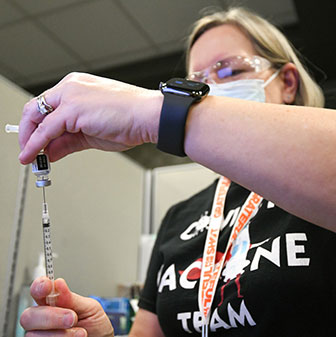What is Restless Anal Syndrome and Can COVID-19 Cause It?

December 29, 2021
Because of its unusual name, the medical condition known as restless anal syndrome has been covered widely by newspapers around the world, even though it has only affected one person.
According to a case study published in September, doctors in Tokyo diagnosed a 77-year-old Japanese man with restless anal syndrome when he developed uncomfortable symptoms after recovering from a mild case of COVID-19. Several weeks after he was treated at a hospital for COVID-19, the man felt an uncomfortable urge to move his bowels that wasn’t relieved when he used the bathroom. He also had other symptoms that shared some similarities with restless legs syndrome, leading researchers to make connections between the sleep disorder and the man’s health. Doctors treated the man with anti-anxiety medication, and his symptoms improved.
What are the symptoms of restless anal syndrome?
The man who was diagnosed with restless anal syndrome experienced:
- Sleep disruptions
- An urge to move his bowels
- The feelings intensified when he was at rest
- Exercising helped to alleviate the urge to move his bowels
- The urge to move became worse during the evening
What’s the connection to restless legs syndrome?
The researchers who diagnosed the patient with restless anal syndrome noted that the condition was similar to restless legs syndrome because of its pattern of discomfort and relief.
People with restless legs syndrome experience:
- Sleep disruptions
- An urge to move the legs
- The feelings intensify when someone is at rest
- Moving or exercising helps to alleviate the urge to move the legs
- The urge to move becomes worse in the evening
Other research has shown that 3.9 percent of people who were diagnosed with COVID-19 have had restless legs syndrome; however, the research didn’t determine whether those people had restless legs syndrome before contracting COVID-19. At least one person with COVID-19 was newly diagnosed with restless legs syndrome during the pandemic.
Should people who recover from COVID-19 worry about restless anal syndrome?
At the moment, only one case of restless anal syndrome has been confirmed worldwide, so it may be an isolated incident.
If you recover from COVID-19, you’re much more likely to experience other long-lasting symptoms, not restless anal syndrome. An April 2021 study that analyzed the long-term symptoms among health care workers who had recovered from mild COVID-19 found that the four most common lingering COVID-19 symptoms were:
- Loss of smell
- Loss of taste
- Lasting fatigue
- Shortness of breath
“The term ‘restless anal syndrome’ is certainly attention-grabbing, but it is very unlikely to affect you personally if you recover from COVID-19,” says family medicine physician, Meha Halari, M.D.
Next Steps & Resources:
- Meet our source: Meha Halari, M.D.
- To make an appointment with Dr. Halari, or a doctor near you, call 800-822-8905 or visit our website.
The material provided through HealthU is intended to be used as general information only and should not replace the advice of your physician. Always consult your physician for individual care.
The Scoop on Breakthrough Infections: Are You at Risk?

The COVID-19 vaccines are very effective at preventing infection, serious illness, hospitalization and death, however there is still a chance for a breakthrough infection.
When to Use an At-Home COVID Test Kit

If you enjoy accomplishing things while staying put, you may even be able to find out whether you test positive for COVID-19 without visiting a testing site

6 COVID-Friendly Party Snacks
Many of us spent the 2020 holiday season away from our families due to the COVID-19 pandemic.

Can Babies Get COVID-19?
The virus that causes COVID-19 doesn’t discriminate; anyone who’s exposed to SARS-CoV-2 might get sick, even babies.

The Truth About COVID-19 Vaccines
False and misleading information about COVID-19 and vaccines seems to be spreading on social media. Here, we debunk some of the more common claims.

Should We Worry About the Omicron Variant?
The latest COVID-19 variant has stepped on the scene - enter Omicron.